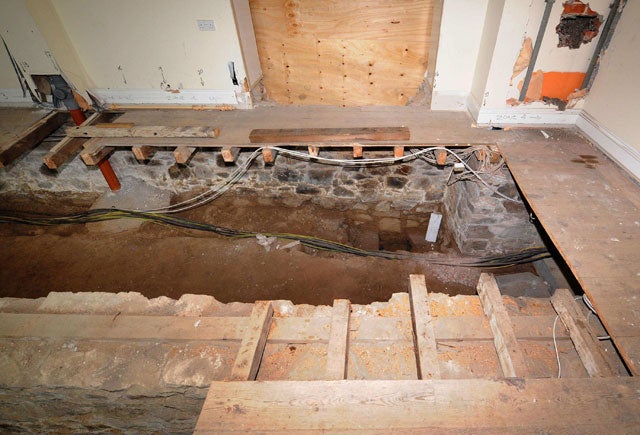Damages claims for Jersey abuse 'blocked'

Claims for compensation by victims of sexual abuse at a Jersey care home are being blocked by the island's government.
Negotiations between Jersey's law officers and representatives of dozens of residents of Haut de la Garenne children's home have failed to establish a right to compensation which victims' lawyers say could cost the island tens of millions of pounds.
The failure to bring justice to the victims of the abuse scandal will add to the perception that Jersey is unwilling to confront its past. Last week, the former head of the Jersey child abuse investigation criticised the Channel island's legal system, which he said had delayed prosecutions and was held in "contempt" by victims.
Now the civil claims dating back to between 1960 and 1980 appear to have run into similar problems.
Tracey Emmott, a child abuse lawyer and partner with Pictons, solicitors in Luton, is representing 12 people who claim to have been abused at Haut de la Garenne and other children's homes in Jersey. She has written to the island's Attorney General, William Bailhache, asking for more to be done to bring about a settlement of the pending cases. While the courts in England and Wales have lifted the bar on historic sexual abuse claims, Jersey's legal system is ill-equipped to deal with such cases.
The criminal injuries compensation board of the parliament, known as the States of Jersey, can only make awards only for injuries sustained after 1 May 1991, and claims for damages in the civil courts have to be launched within three years of a victim turning 18.
Haut de la Garenne closed in 1986 and more than 100 people have come forward saying they were abused there during the Sixties, Seventies and Eighties. A police investigation has resulted in three arrests and the discovery of fragments of children's teeth and bones in the cellar.
Ms Emmott says she is concerned that there should be "movement" from Jersey's law officers in order to obtain justice for her clients by setting up a "board of address" similar to child abuse compensation schemes established in Ireland and Canada.
A year after the scale of abuse first became known, Ms Emmott says the island's law officers have so far given no indication that they see this as a solution.
"At the outset," said Ms Emmott, "we envisaged these difficulties, but now that we are actually in the process of putting the claims together the situation seems to have reached an impasse, I hope temporary, until Jersey introduces changes to the law. This kind of situation was never envisaged when laws involving personal injury were drawn up."
She added: "In England and Wales the law on time limits changed earlier this year in a House of Lords landmark decision in A v Hoare, otherwise known as the 'Lotto rapist' case. The law lords held that a court could exercise discretion when determining whether a claim brought after the cut-off date should be allowed to go ahead. This decision effectively swept away the absolute bar on claims for historic sexual abuse. But it could take a long time, if ever, for this to filter through to the Jersey legal system."
Lenny Harper, who led the inquiry until he retired as deputy chief officer of the States of Jersey Police earlier this month, has also been critical of the legal process. Mr Harper, who now lives in Ayrshire, Scotland, said that victims would give statements and his team would put together a file, but then they would run into "inexplicable delays".
He said that it was as if "the goalposts were being moved" and the decision-making process for the Jersey legal system appeared to be "whenever, wherever". He said: "The legal system has to accept the reality of the situation. They are not trusted at all by the victims. They are held in contempt by the vast majority of the victims."
The retired officer said a dedicated lawyer they were promised "just wasn't there" and for long periods they had no legal assistance. This month, a legal challenge over the handling of the criminal investigation was launched at Jersey's High Court.
A campaign group led by the Liberal Democrat MP John Hemming and the Jersey senator Stuart Syvret wants a judicial review of the "failure" of UK ministers to "enforce the rule of law". But the government of Jersey says it has every confidence in the investigation, and when the judicial process has been completed, any evidence of a cover-up by individuals or agencies will be thoroughly investigated and resolved.
Mr Bailhache said that criticism of its justice system was misplaced. "The courts of Jersey have been delivering justice week in, week out for centuries," he said. "Justice will be done."
Join our commenting forum
Join thought-provoking conversations, follow other Independent readers and see their replies
Comments
Bookmark popover
Removed from bookmarks